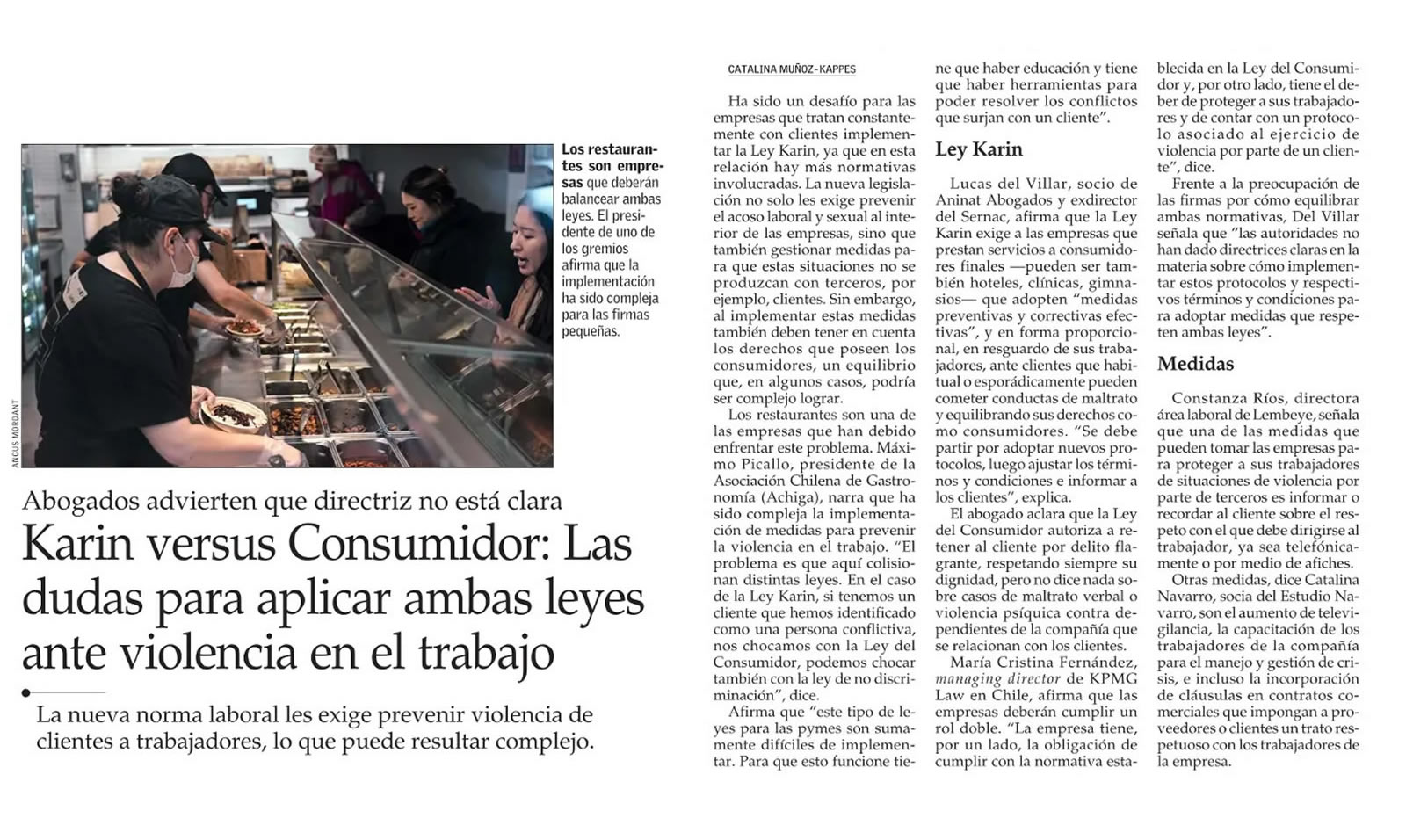Karin versus Consumer: The Challenges of Applying Both Laws in Cases of Workplace Violence

Lawyers warn that the guideline is unclear
The new labor regulation requires preventing violence from customers towards employees, which can be complex.
Implementing the Karin Law has been a challenge for companies that deal constantly with customers, as this relationship involves more regulations. The new legislation not only requires companies to prevent workplace and sexual harassment within the organization, but also to take actions to ensure that these situations do not occur with third parties, such as customers. However, in implementing these measures, companies must also consider the rights of consumers, a balance that, in some cases, could be difficult to achieve.
Restaurants are one of the types of businesses that have faced this issue. Máximo Picallo, president of the Chilean Gastronomy Association (Achiga), explains that implementing actions to prevent workplace violence has been complex. “The problem is that different laws collide here. In the case of the Karin Law, if we have a customer identified as problematic, we run into the Consumer Law and possibly into anti-discrimination laws as well,” he says.
He states that “these types of laws are extremely difficult for small and medium-sized enterprises (SMEs) to implement. For this to work, there must be education and tools available to resolve conflicts that arise with customers.”
Karin Law
Lucas del Villar, partner at Aninat Abogados and former director of Sernac, states that the Karin Law requires companies providing services to end consumers—such as hotels, clinics, or gyms—to adopt “effective preventive and corrective measures,” in a proportional manner, to protect their employees from customers who may habitually or sporadically engage in abusive behavior, while balancing the rights of these customers as consumers. “It starts with adopting new protocols, then adjusting the terms and conditions, and informing customers,” he explains.
The lawyer clarifies that the Consumer Law authorizes companies to detain a customer for a flagrant crime, while respecting their dignity, but says nothing about cases of verbal abuse or psychological violence against employees who interact with customers.
María Cristina Fernández, managing director of KPMG Law in Chile, notes that companies will have a dual role. “On one hand, the company has the obligation to comply with the rules established by the Consumer Law, and on the other, it has the duty to protect its workers and to have a protocol in place for dealing with violence from customers,” she says.
Regarding companies’ concerns about how to balance both regulations, Del Villar points out that “authorities have not provided clear guidelines on how to implement these protocols and the respective terms and conditions to comply with both laws.”
Course of action
Constanza Ríos, director of the labor area at Lembeye, suggests that one of the actions companies can take to protect employees from violence by third parties is to inform or remind customers of the respect they must show to workers, whether by phone or through posters.
Other actions, according to Catalina Navarro, partner at Estudio Navarro, include increasing surveillance, training employees in crisis management, and even incorporating clauses in commercial contracts that require suppliers or customers to treat the company’s employees with respect.
Source: El Mercurio


